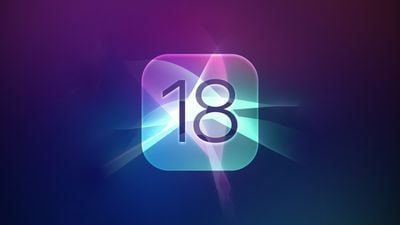Apple is planning a major AI overhaul in iOS 18, but some new features are unlikely to work on older iPhones, even if they do appear on the new operating system’s device compatibility list.
Apple’s initial AI roadmap for iOS 18 is said to come in two parts: Basic AI features that will be processed on-device, and more advanced capabilities that will require communication with Apple’s servers.
At the heart of these features is a redesigned Siri. To that end, Apple engineers have had to rearchitect Siri’s underlying software using large language models (LLMs), the algorithm that underpins generative AI.
According to Bloomberg‘s Mark Gurman, this will allow Siri to do things like open specific documents, organize notes in folders, delete an email, summarize an article, email a web link, and more. Apple reportedly plans to use AI to analyze what people are doing on their devices to automatically enable these features.
Apple’s own LLM is expected to handle what are deemed basic AI tasks, and it will be entirely on-device. In other words, the model is powered by the iPhone’s processor, rather than in the cloud. It’s not clear what the criteria for a basic task will be, but the LLM is said to include code that determines if a request can be processed on device or requires Apple’s servers.
According to Gurman, the on-device AI capabilities will largely require an iPhone 15 Pro or later to work. Meanwhile, rumors suggest iOS 18 will be compatible with the same iPhone models as iOS 17. Combining the two reports, we should therefore expect the following iPhone models to run iOS 18, but lack support for some of Apple’s on-device AI features:
- iPhone 15
- iPhone 15 Plus
- iPhone 14
- iPhone 14 Plus
- iPhone 14 Pro
- iPhone 14 Pro Max
- iPhone 13
- iPhone 13 mini
- iPhone 13 Pro
- iPhone 13 Pro Max
- iPhone 12
- iPhone 12 mini
- iPhone 12 Pro
- iPhone 12 Pro Max
- iPhone 11
- iPhone 11 Pro
- iPhone 11 Pro Max
- iPhone XS
- iPhone XS Max
- iPhone XR
- iPhone SE (2nd generation)
- iPhone SE (3rd generation)
Both iPadOS 18 and macOS 15 are expected to share many of the same AI features, and Gurman has said that Macs and iPads will need at least an M1 chip for the on-device AI capabilities. In other words, Apple silicon Macs are the requirement for on-device AI in macOS 15 (ruling out Intel Macs), while anything older than the fifth-generation iPad Pro will not support on-device AI features in iPadOS 18.
While it’s not entirely clear which hardware factor is the key requirement for Apple’s on-device AI, it’s worth noting that (non-supported) standard iPhone 15 models have 6GB of RAM, while the supported Pro models have 8GB of RAM. Likewise, all Apple Silicon iPads and Macs come with a minimum of 8GB. Even when scaled back for narrow use cases, LLMs require a lot of working memory due to the sheer number of parameters involved, so this could be where Apple is coming up against the hardware limitations of its own devices.




